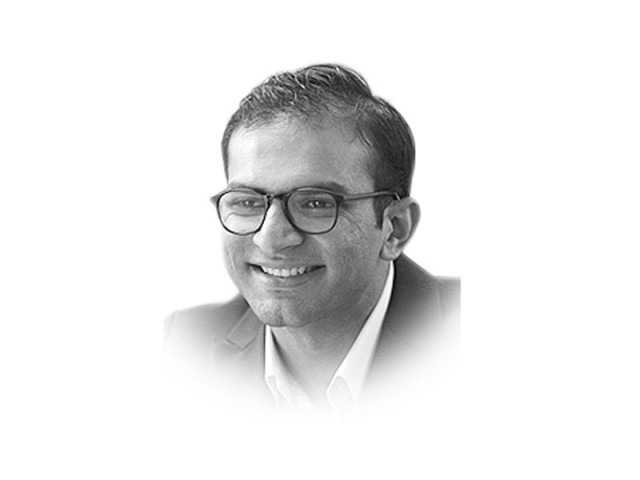Income inequality and taxes
Growth is indeed returning to Pakistan, but the fruits of this growth will largely enter the coffers of the elite.

The writer is a Masters student at The Fletcher School of Law and Diplomacy. He tweets @uzairyounus
The book is mainly a discourse on capitalism in the West but it has a number of lessons for the developing world. In the last few decades, emerging economies have shown strong growth. However, this growth has also been accompanied by rising inequality and recent protests in Turkey, Brazil and other emerging economies as signs of this growing divide. The situation in Pakistan has been similar, where high inflation and a stagnating economy has dealt a great blow to the majority of the population. Even during Musharraf’s era, where the economy grew by leaps and bounds, incomes primarily rose for the urban populace belonging to the upper echelons of our society. During this period, real incomes for the rural poor fell, and this trend has increased over the last few years.
The business-friendly and industry-oriented government of Prime Minister Nawaz Sharif has made economic growth a fundamental priority. However, like the capitalist elite all over the world, the cabinet and close advisers of the prime minister believe in trickle-down economics. Their belief is that growth led by capitalists, will trickle down as growth for the less privileged in due course. While inequality will rise in the short-run, the medium and long term will usher in an era of prosperity for the majority of the population. This policy has been in action since the new government took power and gave Rs.477 billion in tax exemptions to the elite, a 100 per cent increase from the last fiscal year. Reports indicate that the new budget will continue this trend and continue to give exemptions to those that need them the least, while using regressive forms of indirect taxation and cutting subsidies to break the back of those that need monetary relief.
For a feudal society like Pakistan, where a small moneyed class has reigned supreme for decades, such a policy will reinforce the status quo and increase the divisions within our society. The inequality of the Musharraf era was largely visible in urban centres like Lahore and Karachi as expensive imported cars, designer clothing, and fashionable malls catering to the elite popped open in every nook and corner. During this same period, the average Pakistani has been placed under increasing fiscal strain, struggling to even properly feed his or her family. The result has been a rise in malnutrition, with about 1.5 million children in Pakistan suffering from it. Both women and children suffer from this epidemic and estimates say that more than half of women and over 60 per cent of children under five years of age are anaemic in Pakistan.
For an economy to grow, investments need to be made in developing human capital through education and healthcare. The provision of these services rests on effective taxation and redistribution of wealth as it allows money to flow from the elite to the less privileged in society. With one of the lowest tax-to-GDP ratios in the world, Pakistan needs fundamental taxation and economic reforms. Taxing the elite is the first step in fixing this growing problem and this is what Piketty argues for in his book. Sadly, for a government whose power base is the moneyed class, fundamental reforms that seek to reduce inequality and establish a more equitable taxation system will not be a priority. Economic growth is indeed a priority, but the economic growth model being followed by Nawaz Sharif’s government seeks to benefit the owners of capital and those who have already accumulated vast amounts of wealth. Growth is indeed returning to Pakistan, but the fruits of this growth will largely enter the coffers of the elite and this will only reinforce the growing divisions within our society.
Published in The Express Tribune, June 5th, 2014.
Like Opinion & Editorial on Facebook, follow @ETOpEd on Twitter to receive all updates on all our daily pieces.















COMMENTS
Comments are moderated and generally will be posted if they are on-topic and not abusive.
For more information, please see our Comments FAQ